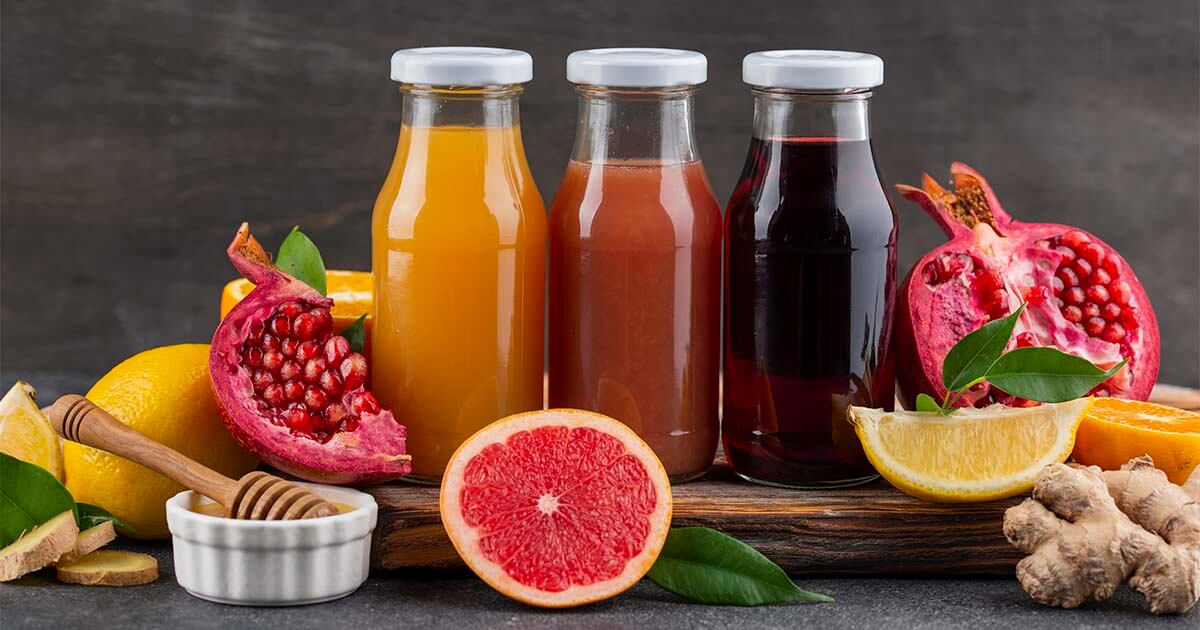
Chronic inflammation is generally a symptom of prolonged stress. And it’s quite common in today’s society. Although its root cause is still unclear, lifestyle changes like juicing can reduce inflammation. This is because reducing tension and stress in the body calls for more hydration, a supportive diet, exercise, and ample sleep.
While juicing can reduce inflammation, let’s first take a look at what foods you should avoid.
Foods That Cause Inflammation
A healthy diet or juicing can make a big difference if you’re looking to reduce inflammation. But first, you should stay away from foods that cause inflammation in the first place, such as:
1. Fried Foods
Fried foods are known to disrupt the digestive system, therefore increasing inflammation. For example, fried foods like egg rolls, churros, doughnuts, and French fries. Because these foods use high-heat cooking methods with oils, there’s a rise in harmful compounds like advanced glycation. And this can cause numerous chronic inflammatory diseases.
2. Sugar
Sugar can cause exacerbated inflammation in the body. Albeit, not all sugar is harmful. However, high fructose corn syrup and white table sugar (sucrose) are big contributors to inflammation.
3. Refined or Processed Foods
Also, you should stay away from refined or processed foods. Because refined foods removes one or more edible components, it makes it unnatural. So, it’s left with less nutritional value than before. Processed or refined foods include cereals, cakes, pastries, pasta, candy, and bread. Additionally, food that has added sugar or flour is also refined or processed.
How Juicing Can Help Reduce Inflammation
Regularly consuming foods with anti-inflammatory properties is an effective way to prevent or reduce inflammation. For this reason, juicing first thing in the morning is one of the easiest ways to do so.
Nowadays, you don’t have to spend hours in the mornings make your own juices. There are many high-quality cold-pressed juices on the market. Key ingredients to look for are ginger, celery, pineapple, spinach, and cucumber. Let’s take a look at the role each of these play in reducing inflammation.
Ginger
Ginger has long been used by cultures across the globe against all kinds of illnesses and ailments. Studies shows its rich phytochemistry makes for an anti-inflammatory and anti-oxidative effect that serves to keep the body functioning in optimal health.
Celery
Celery contains luteolin and apigenin, two helpful antioxidants which may help treat inflammation directly. Although the taste can be bitter in juice, when combined with the right mixture of other healing anti-inflammatory foods, the taste is spectacular.
Pineapple
Pineapple contains bromelain which is easily absorbed by the body and contributes to the reduction of osteoarthritis pain, diarrhea, and cardiovascular disorders.
Spinach
Spinach contains the antioxidant quercetin in high amounts. This makes it one of the richest dietary sources to prevent and lessen inflammation. Spinach also enforces pancreatic concentration of lipase and amylase.
Cucumbers
Cucumbers contain various phytonutrients like beta carotene and flavonoids which induce anti-inflammatory processes in the body. Also, they are made up of 95% water. Therefore, cucumbers are hydrating and full of antioxidants and minerals like lignans, potassium, and magnesium.
How Jane’s Cafe Can Help
At Jane’s Cafe, we pride ourselves on serving the perfect blend to ward off inflammation with delicious cold-pressed juices. We are dedicated to providing simple and healthy food options for people on the go. To try our cold-pressed juices, order online today or visit our cafe in Mission Valley!
You may also enjoy reading: Can You Eat Desserts While On A Diet?











Leave a Reply